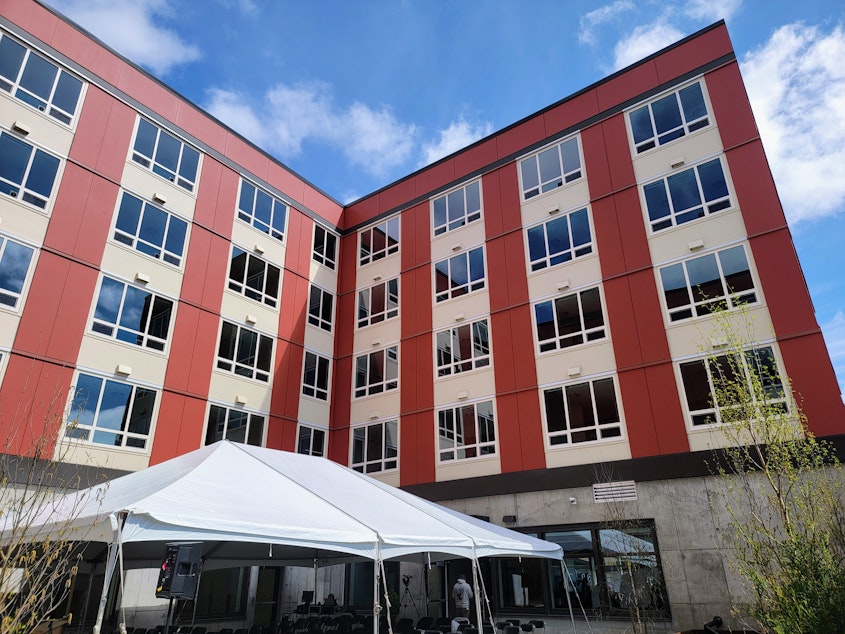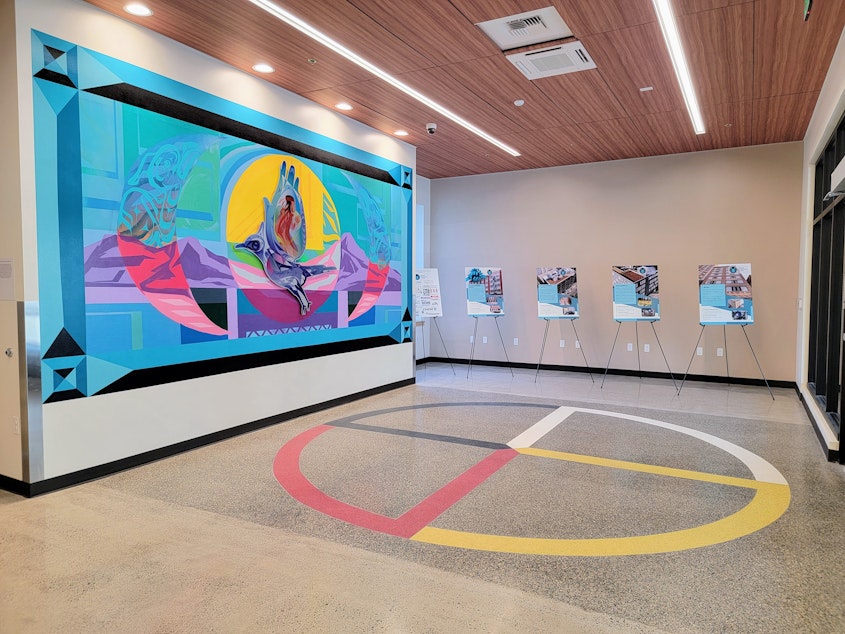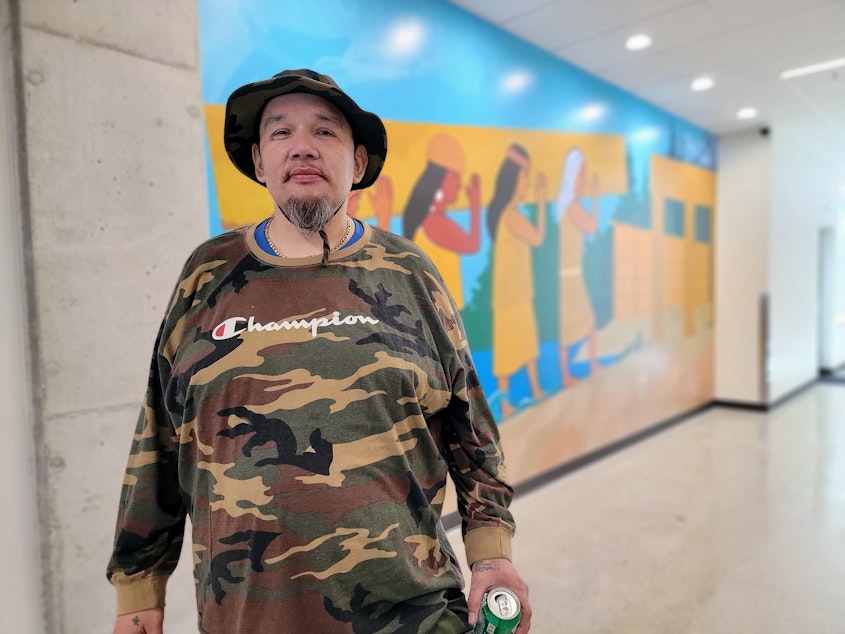New Seattle apartment opens with promise to ‘end Native homelessness in King County’

A new five-story apartment building has opened on Lake City Way in northeast Seattle for adults experiencing chronic homelessness. The complex is the fourth housing development to open in the last few years for Native adults who struggle to find stable housing.
On Friday afternoon, excited families walked through the pristine halls of the newly opened Sacred Medicine House. Vibrant murals covered the walls and the space was filled with warm sunshine from the many tall windows.
Sacred Medicine House offers 120 studio apartments with amenities like a communal kitchen, activity room, lounge, laundry, and an outdoor courtyard with a large medicine wheel.
The top four floors are each dedicated to a different Native region with floor-to-ceiling paintings that greet residents when they step out of the elevator.

It’s the fourth housing project owned and operated by Chief Seattle Club in recent years and by far the biggest. The organization says they now offer a total of 339 housing units in King County.
Sponsored
“We have hit a major milestone in our efforts,” said Derrick Belgarde, executive director of Chief Seattle Club, “with the opening of Sacred Medicine House, along with our other properties, we have the space to house more than a quarter of our relatives in King County who have been experiencing chronic homelessness.”
Lorne Briden, 50, is one of the new residents at Sacred House. He says he’s most excited to be settling down and getting his life together. This is his first apartment after being homeless for the years, he said.
“I’ve struggled with homelessness my whole life,” he said, “being incarcerated, drug addiction. Now I’m getting away from all that stuff and turning a new leaf.”
Briden doesn’t know which room will be his yet, though he said it’d be fun to get a corner unit with a view of Lake City Way.
But it doesn’t really matter, he said, he’s just too excited to be moving into some place stable and meeting new neighbors.
Sponsored
“Natives have a place to go now,” he said, staring out at the open courtyard. “We can collaborate together and make things happen. That’s really neat. I hope to become part of that.”

Indigenous adults like Briden make up a disproportionate share of King County’s homeless population. According to the regional homelessness authority, Native Americans account for about 1% of the general population but 15% of homeless adults are Indigenous.
County Deputy Executive Shannon Braddock called that statistic “inexcusable.”
“It's a direct result of the settler colonialism that forced Seattle's First Peoples off their ancestral lands,” she said.
Sponsored
Seattle Mayor Bruce Harrell said projects like Sacred Medicine House are part of the city’s “sacred duty” to partner with Native communities and build hubs of support.
Sacred Medicine House residents will start to move into their new homes April 29.
But this isn’t Chief Seattle Club’s last development for homeless Native Americans in the area.
“We are going to open a building like this every year for the next five to six years until we end Native homelessness,” Belgarde said to big cheers and applause, “We are not here to lower the Native homelessness rate — we are here to end Native homelessness in King County.”




